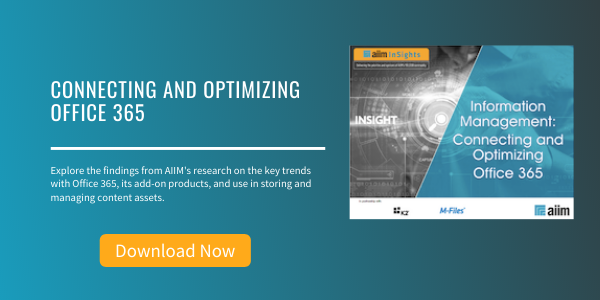
8 Ways to Make Things Easy for Your SharePoint Development Team
1. Establish a Clear “Sandbox” Mentality.
SharePoint developers need robust environments where they can develop, debug, and troubleshoot sophisticated solutions that integrate resources supported anywhere on the internet. This includes domain controllers, Active Directory, external databases, and Office clients. Without this solid foundation, the user-centric social value that SharePoint provides will remain out of reach. In addition, without a robust 64 bit 4+Gb host, your developers will spend hours looking at an hourglass, and any developer with any ADD will quickly lose focus.
2. Allow for Developers to Segregate Their Personal Workstations from their Development Environments.
Anybody with full-time use of a specific workstation will grow comfortable with its configuration. If your developer must support his development efforts on that same machine, he or she will hesitate before venturing into unfamiliar territory. To maintain the delete and revert option, the developer’s personal machine must not be vulnerable.
3. Store and Maintain a Number of VM Images and Snapshots.
Deploying a “Greenfield” farm should not take more than 20 minutes, enough time to download a VM and enter its admin password. Once site design and configuration tasks are completed, take snapshots so subsequent efforts can continue without fear of breaking something that already works. Development add-ons, third party solutions, troubleshooting, and community-sourced artifacts often lead to dead ends. Delete and revert can be substantially more efficient than backing out.
4. Support Frequent Machine Rebuilds.
Once solutions are packaged and deployable, they can be off-loaded and stored elsewhere, and the host machine can be restored to Greenfield state ready to support the next development effort.
5. Provide a Development Network.
As development efforts mature, they need to be socialized. A universally accessible network supports this demand in a virtual team setting. Populated with valid accounts, real people and real work is the only way to be sure a “model office” can meet production demands. Likewise, with access to network resources and internet connectivity, all the content on the www is within the developers’ reach.
6. Support Frequent Functional Reviews Demonstrating Generic Solutions.
Developers should be steered toward solutions that can be deployed without involving the customer's brand or intellectual property. These elements should be deployable at runtime at the site collection level. This way, a solution can be installed and demonstrated using Fabrikam-like design and content. Network users and potential stakeholders can discover and experience the solutions as they operate in a real-network setting.
7. Explore and Adopt Best Practices Aggressively.
When a successful solution is deployed and its ROI measured, be sure the entire development community learns its objective and becomes familiar with the solution’s approach. Allow the community to compare that approach with others and comment on suitability and alternatives.
8. Keep and Update Links to Virtual Community Content.
As developers explore and identify applicable content on the internet, make it clear that they should post the link, with subject matter tags and comments, in a master link list. This way, SMEs on one topic can leverage the experience of SMEs on other topics.
About John Mancini
John Mancini is the President of Content Results, LLC and the Past President of AIIM. He is a well-known author, speaker, and advisor on information management, digital transformation and intelligent automation. John is a frequent keynote speaker and author of more than 30 eBooks on a variety of topics. He can be found on Twitter, LinkedIn and Facebook as jmancini77. Recent keynote topics include: The Stairway to Digital Transformation Navigating Disruptive Waters — 4 Things You Need to Know to Build Your Digital Transformation Strategy Getting Ahead of the Digital Transformation Curve Viewing Information Management Through a New Lens Digital Disruption: 6 Strategies to Avoid Being “Blockbustered” Specialties: Keynote speaker and writer on AI, RPA, intelligent Information Management, Intelligent Automation and Digital Transformation. Consensus-building with Boards to create strategic focus, action, and accountability. Extensive public speaking and public relations work Conversant and experienced in major technology issues and trends. Expert on inbound and content marketing, particularly in an association environment and on the Hubspot platform. John is a Phi Beta Kappa graduate of the College of William and Mary, and holds an M.A. in Public Policy from the Woodrow Wilson School at Princeton University.



